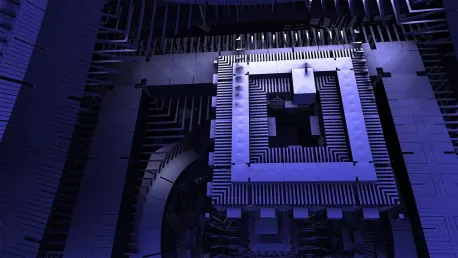Massachusetts is making a significant leap into the future of technology with a $5 million investment in quantum computing, underscoring the state’s commitment to pioneering advancements in this cutting-edge field. This strategic initiative, in collaboration with the Boston-based company QuEra, aims to establish Massachusetts as a burgeoning hub for quantum computing, according to Devesh Tiwari, an expert in quantum computing and the director of the Goodwill Computing Lab at Northeastern University. Tiwari highlights the transformative potential of quantum computing and shares insights on the progress being made in the field, emphasizing that the investment will open new frontiers for science and industry alike.
The Quantum Computing Revolution
Quantum computing represents a paradigm shift in computational technology that promises to revolutionize various industries. Unlike classical computers that use binary bits (represented as 0 or 1), quantum computers use quantum bits or qubits, which can exist in multiple states simultaneously due to the principle of superposition. This fundamental difference allows quantum computers to process complex calculations at exponentially faster speeds than classical computers, making them particularly promising for solving problems in cryptography, supply chain optimization, and drug discovery—challenges that are beyond the capabilities of even the most advanced classical supercomputers.
Devesh Tiwari’s enthusiasm for the potential of quantum computing is unmistakable. He describes the technology as “the stuff made of dreams,” highlighting its transition from science fiction to a tangible reality attracting substantial investments from governments and major corporations worldwide. The Holyoke initiative, backed by Governor Maura Healey’s administration, reflects a growing recognition of quantum computing’s capacity to drive significant scientific and industrial advancements. As Massachusetts joins other states and countries in investing in quantum technology, Tiwari believes that this is the crucial time to capitalize on the myriad opportunities that quantum computing presents.
Massachusetts’ Strategic Investment
The $5 million investment in Holyoke is part of a broader strategy to position Massachusetts as a leading innovator in the quantum computing sphere. This substantial funding emphasizes the state’s ambition to become a central hub for this groundbreaking technology, fostering an ecosystem where research, development, and commercialization efforts can thrive. The collaboration with QuEra, a Boston-based company, signifies a strong commitment to public-private partnerships that are instrumental in translating quantum computing theory into practical applications. These collaborations are key to driving both scientific progress and economic growth, as they enable the leveraging of academic expertise and industrial resources to achieve common goals.
The Holyoke project is expected to create numerous opportunities for research and development, as well as the commercialization of new quantum technologies. By bringing together academic leaders like Northeastern University and burgeoning companies like QuEra, the initiative aims to propel Massachusetts to the forefront of quantum computing innovation. Similar investments are being observed across the United States and globally, but Massachusetts’ proactive approach, supported by strategic investments and collaborative efforts, underscores its determination to lead in this revolutionary field.
Pioneering Work at Northeastern University
Under the leadership of Devesh Tiwari, the Goodwill Computing Lab at Northeastern University is at the vanguard of translating quantum computing theory into practical applications. The lab has achieved significant milestones, such as using IBM quantum computers to generate high-quality images through quantum generative adversarial networks (QGANs). This innovative method involves creating new data samples that closely resemble existing ones, demonstrating the practical capabilities of quantum computing in fields such as artificial intelligence and data science. These achievements highlight the lab’s pivotal role in both advancing quantum computing research and showcasing its real-world applications.
Tiwari’s former Ph.D. student, Tirthak Patel, now a professor at Rice University, continues to contribute to the field with pioneering work that bridges theoretical research and practical applications. Patel’s development of innovative quantum compilers for neutral atom technology aligns seamlessly with QuEra’s Massachusetts-backed project, showcasing how academic research can translate into commercially viable technologies. Such advancements exemplify the symbiotic relationship between leading research institutions and industry, fueling the continuous progress and implementation of quantum computing technologies.
Quantum Computing in Medicine
One of the most promising applications of quantum computing lies in the field of medicine, particularly in drug discovery and development. Quantum computers possess the remarkable ability to simulate molecular interactions at an unprecedented level of detail, enabling researchers to understand how potential drugs interact with the human body more precisely. This capability could significantly accelerate the drug development process, leading to the faster and more effective discovery of new medications. Tiwari emphasizes that such advancements could revolutionize the pharmaceutical industry by improving the efficiency and accuracy of drug discovery efforts.
Despite its potential, quantum computing faces significant technical challenges, particularly in addressing error rates that can distort calculations. Tiwari’s team at the Goodwill Computing Lab is actively exploring methods to enhance the reliability of quantum computers. Their research focuses on developing quantum machine learning models that have already achieved up to 90% accuracy in some instances. While this level of accuracy is slightly below that of classical supercomputers, it is nonetheless impressive considering the fewer machine learning parameters and smaller quantum systems utilized. The lab’s efforts illustrate the progress being made in overcoming the technical hurdles of quantum computing, paving the way for its broader application in medicine and other fields.
Expanding Horizons: Natural Language Processing
Massachusetts is taking a huge step forward in technology by investing $5 million in quantum computing, highlighting the state’s dedication to leading advancements in this cutting-edge field. This strategic move, in partnership with the Boston-based company QuEra, seeks to position Massachusetts as a rising hub for quantum computing. Devesh Tiwari, an authority in quantum computing and the director of the Goodwill Computing Lab at Northeastern University, emphasizes the investment’s significance. Tiwari points out the transformative potential that quantum computing holds and provides insights into the progress being made. He believes the investment will unlock new opportunities for both science and industry, fostering innovation and paving the way for groundbreaking discoveries. The collaboration with QuEra not only aims to bolster Massachusetts’ reputation in technology but also to attract talent and drive economic growth, making the state a focal point for quantum research and development.









